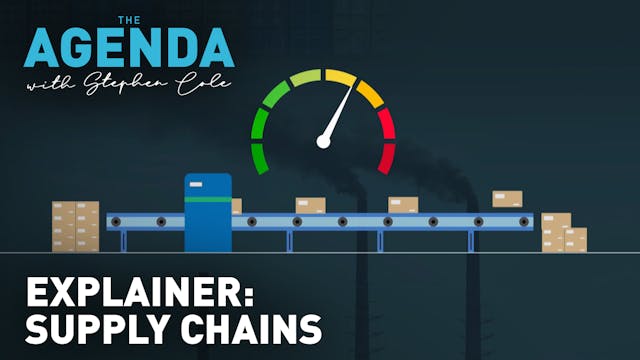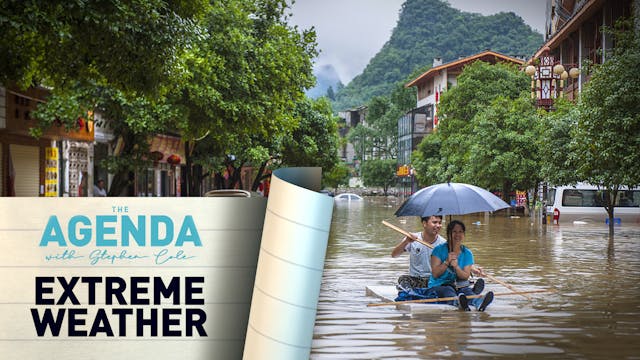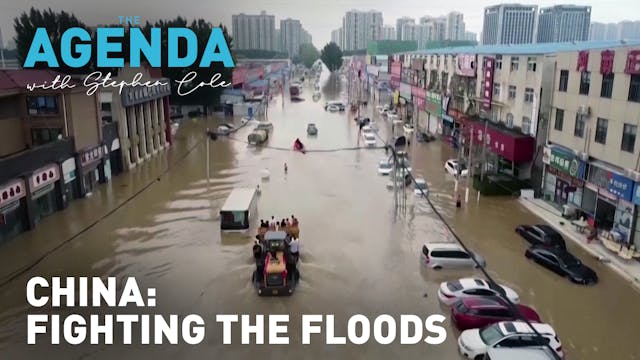SUPPLY CHAINS - The Agenda with Stephen Cole
The Agenda
•
29m
The festive season is upon us, but as we edge through December the conveyor belt of consumerism could stop moving at any moment. With the world battling strained supply chains, this week on The Agenda with Stephen Cole, we're finding out just what’s gone wrong, and in this age of clicks and convenience, how can we prevent a system-overload?
The Agenda’s Stephen Cole speaks to Mickey Howard, Professor in Sustainable Supply Chain Management at Exeter University, who explains the fragility of our supply chain systems as well as why limited supplies of lithium could prove to be the next big conundrum for consumers.
For ways of unravelling the tangled global supply chains, we hear from Tom Van Woensel, Director of the European Supply Chain Forum and Professor of Freight Transport and Logistics at Eindhoven University of Technology. Tom explains the impossible task of planning for the ‘unknown-unknowns’ and why it’s not always in a company’s interest to build supply chains which can sufficiently cope with unlikely, but severe, natural disasters.
With China being at the very centre of the supply chain, having a strong and stable system is crucial for the world’s largest manufacturer. To explain what China is doing to manage its global exports and maintain its resilience, as well as how China could help the world get back on its feet, is Qu Qiang, Assistant Director of the International Monetary Institute at Renmin University of China. He tells Stephen China wants to share its capacity and production power with other countries to make the overall global shipping process easier and cheaper for all.
When it comes to food production, there is no one dominant producer. Trade is important to all countries, as very few are self-sufficient. So, when something like a blockage or a pandemic causes a supply-chain-reaction, shelves around the world are left looking bare. Tom Bradshaw is Vice-President of the UK’s National Farmers’ Union and joins Stephen Cole to explain why the ongoing issues should act as a wake-up call for the world to reconsider globalization and start sourcing food and products locally instead.
Watch #TheAgenda in full and find out more at:
https://www.cgtn.com/europe/the-agenda 📲
Follow CGTN Europe on social media and other platforms👇🏼 https://stories.cgtneurope.tv/follow-cgtn-europe/index.html
Up Next in The Agenda
-
Supply Chains: How they work - The Ag...
What caused the semiconductor shortage? Why couldn’t supermarkets stock toilet roll? And what lasting impact has the Suez Canal blockage had on trade?
The Agenda’s Stephen Cole explains the fragility of our just-in-time supply systems and why it’s time to take stock.Watch #TheAgenda in full a...
-
Extreme weather: current crisis #TheA...
As the world continues getting warmer, extreme weather events are becoming more frequent. Whether it’s floods, fires or drought, global experts point to climate change. Sadly, when extreme weather strikes, some of the lowest carbon-producing countries – often also the poorest nations - seem to be...
-
China’s plans for fighting floods - #...
More than 1.7 million people were affected by severe flooding in China’s northern Shanxi province in October after torrential train triggered landslides and led to thousands of homes collapsing across more than 70 districts and cities.
Just three months prior, hundreds of people died as a result...



